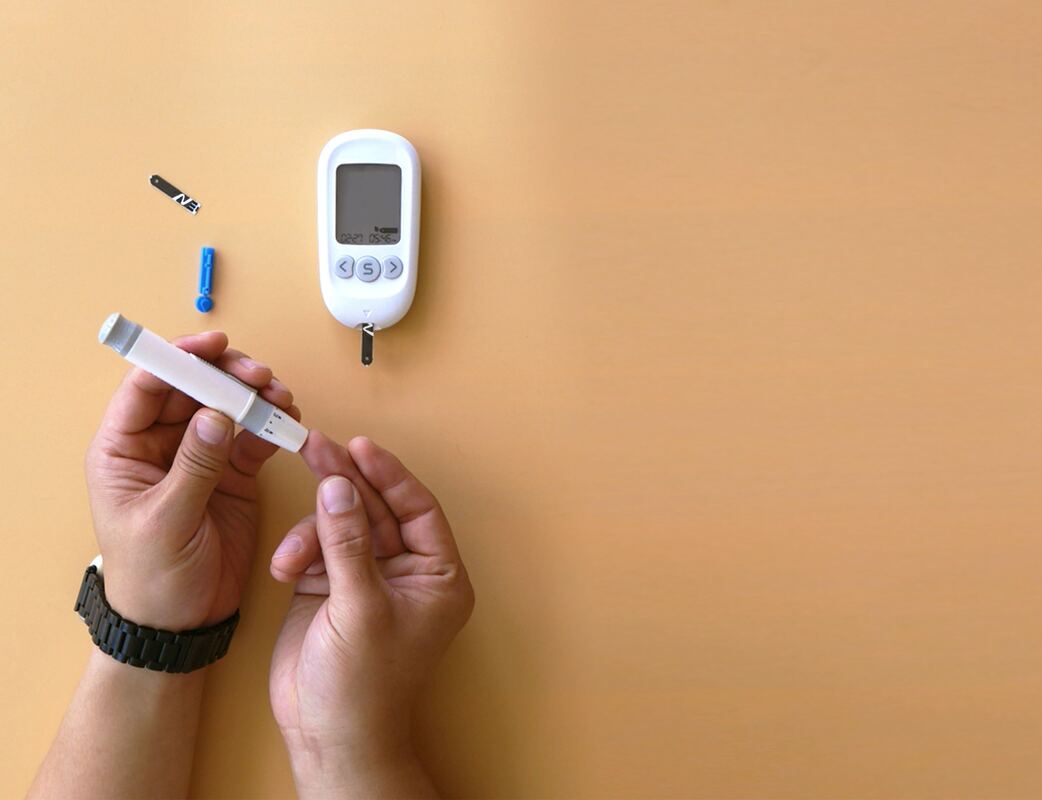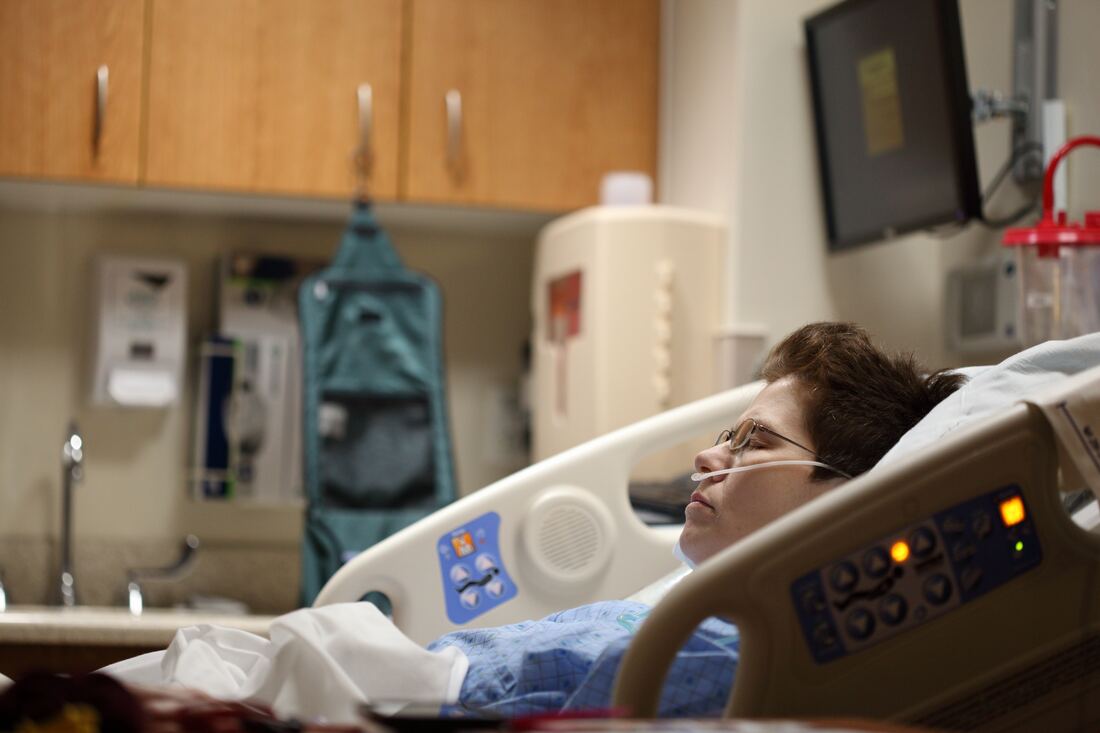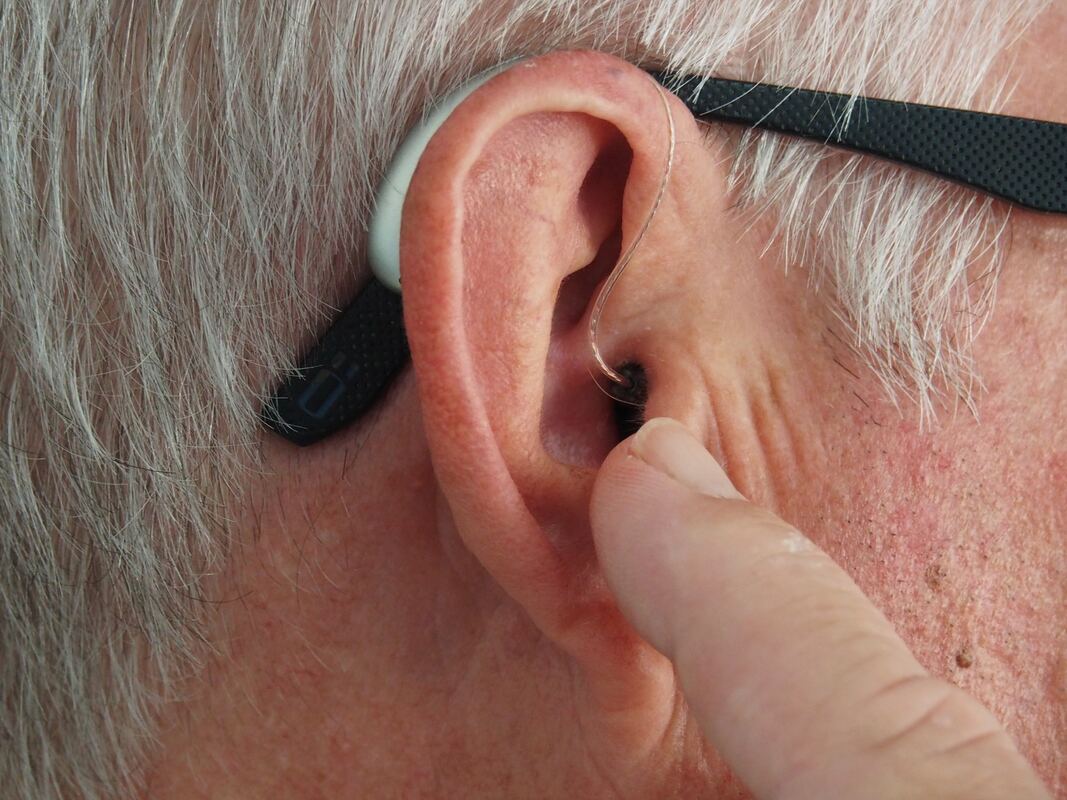|
When your blood sugar levels are not regulated, you may experience hearing loss.
Diabetes and hearing loss are common health issues among American adults. There have been reports from nearly 15% of adults in the U.S. (37.5 million) who said they experienced problems with their hearing. Symptoms of hearing loss generally worsen as a person ages. Roughly 25% of people between 65 and 74 years old have this condition. About 50% of people, at least 75 years old, sustain disabling hearing loss. There is an overlap among patients with both diabetes and hearing loss. According to the American Diabetes Association (ADA), patients with diabetes are twice as likely to have hearing loss than patients who do not have diabetes. In the U.S., patients with prediabetes blood glucose levels are more likely to have a 30% higher rate of hearing loss than patients with average blood glucose levels. Diabetes and Hearing Loss can lead to Sensory Damage. Your nervous system can become damaged from unmanaged diabetes. That can impact your whole body. A common symptom is the inability to hear high and low frequencies. Other risk factors may include heart disease, low HDL cholesterol, peripheral neuropathy, and overall poor health. If you have diabetes and chronic diseases, you should get a hearing test. Some medications related to diabetes affect a patient’s overall health, which can negatively impact their hearing. There are some things you can do to curb this problem.
How can Diabetes lead to Falls? Falls are another thing to worry about if you have diabetes and hearing loss. The vestibular system, located in the inner ear, is the sensory system that gives the fundamental sense of balance and spatial orientation on a person’s movement with balance -. The vestibular system can become damaged due to diabetes. The top complaint from patients over 70 years old, with diabetes and hearing loss, is vertigo. Hearing problems that remain untreated can harm relationships, whether they are personal or professional. These are some reasons why taking care of both diabetes and your hearing should be a priority. Better hearing can lead to better overall health by giving you more energy to live your life. Contact Northumberland Hearing Center for a hearing exam and consultation with our hearing care professionals.
0 Comments
If you’ve ever experienced an emergency, whether medically related or due to another unfortunate disaster, some challenges may have happened when you tried to communicate. These could have included loud sirens going off, poor phone signals, or stressing over trying to communicate quickly, clearly, and efficiently, just to name a few.
For anyone who is deaf or has difficulty with their hearing, this is an additional barrier to effective communication. The Complications that Come with Communicating during Emergencies For anyone with normal hearing abilities, sirens and alarms can be so painful and loud that they need to cover their For some, especially those with high-frequency hearing loss, hearing things like sirens or smoke alarms can be challenging. Have You Ever Failed to Notice Indirect Cues that Would Alert You to Danger? Loud sirens are not the only thing that signals impending danger. The ability to hear allows you to be more aware of your surroundings - whether you notice an intruder, a car engine that doesn’t sound right, or the sound of a child’s cry. Hearing also lets you know which direction the danger is coming from. Anyone with hearing problems might unknowingly go towards danger or walk away from someone else’s dangerous situation and neglect to help that person. Listening and Speaking to First Responders Following directions from first responders or answering their questions can be challenging. Here are some tips for communicating with others during an emergency. 1. Be prepared. Emergencies are usually unexpected. However, there are ways to prepare how you will manage these situations. Plan a meeting place and what to do after the crisis occurs. Prepare a go-bag with emergency supplies stored inside. Let at least one neighbor that you are friendly with know your plans and ask them to check in on you if they hear your alarm go off. 2. Make sure your alarms and safety devices are updated and functioning correctly. Most smoke and carbon monoxide detectors will make a beeping noise, create a flashing visual cue, or vibrate if a person is in danger. Doorbells that create blinking lights or alarms for a person’s bed shake can also alert hard-of-hearing people of potential threats. 3. Keep your hearing aids on. It’ll be easier to detect danger and communicate while wearing them. Have them fully charged or a pair of new batteries on hand. Recharge the hearing aids by your bed to make them easily accessible if you are awoken suddenly at night. If you live in an area that frequently experiences earthquakes, place your hearing aids securely in a container next to your bed so they don’t fall off. Store spare batteries in a designated cool, dry place for emergencies. If you wear rechargeable hearing aids get a portable charger to place in your go-bag to access it easily. Emergency Alerts Add your name, phone number, and other information to text alerts instead of phone alerts so emergency messages can be easily accessed and followed. Consider wearing a medical bracelet. It’s a helpful way to provide information about anyone with hearing loss, allergies, or any other serious medical condition. Include details about medications you take, what type of hearing device you wear, or crucial health information. Keep means of Communication in an Emergency Supply Bag. Here are some things to keep in mind when packing your supply bag:
Other Things to Keep in Mind for Better Communication
Are You Experiencing Problems with Your Hearing Aids during an Emergency? If your hearing aids have stopped working during an emergency, rely on your other senses. Get near people who are speaking. Ask them to talk louder, slower, and enunciate their words. Focus your attention on their facial expressions and do your best at lipreading. Caregivers for the Deaf or Hard of Hearing If you care about someone hard of hearing, here’s how you can help them during an emergency:
Have good lighting so they can see your face and a quiet space without too many distractions or background noise. If you or a loved one are experiencing hearing loss and need hearing aids, contact us at Northumberland Hearing Center for a hearing evaluation and consultation. Hearing loss that stays untreated could leave you with severe consequences to your health and quality of life. Every time you hear something, your brain gets exercise. Not receiving help for hearing loss can worsen a patient’s cognitive performance because it shrinks and atrophies the brain. More cases of falls due to imbalance, hospitalizations for these outcomes, and a high risk of depression and dementia caused by social isolation - this may occur due to the challenges that come with communicating while having hearing problems.
Your ability to appreciate TV, movies, music, and nature can be futile due to difficulties with hearing. You’ll begin to feel excluded. The inability to hear can also throw you into an unsafe environment. If you can’t hear a car or emergency vehicle driving in your direction, that can put you and the driver at risk of a collision. Completing tasks at work might be more challenging, and missteps can reoccur. As a result, your income can be affected. It’s common for people with hearing loss to be in denial over their hearing problems. Instead of seeking help immediately, they’ll ask others to repeat themselves or raise the volume level to whatever they are listening to. Other practical reasons why people may not seek help immediately, or at all, is because they cannot afford it or don’t have health insurance. A network of support from family, friends, and healthcare providers is necessary for starting their lives toward better hearing. Things You Can Do for a Loved One with Hearing Loss Simply be available. This person might need you to listen to their frustrations about hearing and communicating, or maybe there was an incident they need to vent about. You could “be their ears” in social situations if they mishear something or completely miss out on what was said. Be patient and supportive, even if you have no clue what they are experiencing with their struggles. Point Out that their Hearing Loss also Affects You. Give a gentle reminder about how you and others who interact with them are also affected by their hearing loss. Whether it’s the need to repeat themselves or safety issues - the inability to hear warning sirens, oncoming vehicles, or news/weather alerts. How You Can Help a Loved One with their Hearing
Don’t Delay Receiving Help Like any health issue, the longer you wait to seek a diagnosis and treatment, the more challenging it will be to treat. Untreated hearing loss becomes progressive, which can mean expensive medical care or no treatment options. Contact Northumberland Hearing Center for a hearing evaluation and consultation. If you recently saw a fireworks display, it was a good reminder of how loud they can get. Noises from fireworks can reach up to 150 to 175 dB. Annually, people who go to a live fireworks display without hearing protection experience some loss in their hearing abilities.
Whether you experience hearing loss or not, please protect your hearing the next time you plan to see fireworks. If you’ve recently noticed problems with your hearing after seeing fireworks, see an audiologist immediately. It only takes one exposure to loud noise to permanently damage your hearing. Prolonged exposure to any noise over 70 decibels (dB) can begin to deteriorate your hearing health. In the future, how should you prepare yourself before seeing fireworks? 1. Are you standing far away from the source of the noises? The farther away you are from the bursts of noises, the less likely you are to experience problems with hearing. 2. How far should you distance yourself from the source of the fireworks? The World Health Association has stated that adults should not be exposed to noises from fireworks that reach over 140 decibels (dB). Fireworks noises that reach over 120 dB can be dangerous for children. Adults can safely be 15 to 20 meters away from fireworks that reach 170 dB. Kids should stand 50 to 60 meters away. Babies should never be exposed to fireworks because the noise creates too much sound pressure. 3. Wear protection for your Ears. No matter what type of fireworks you plan to see - store-bought or professional fireworks displays - protect your ears. There are two types of hearing protection to choose from:
If you are experiencing changes to your hearing from exposure to loud noises or for any other reason, please contact Northumberland Hearing Center. If your hearing isn’t as good as it used to be, a loved one’s voice, music, or nature might not sound like it used to. You can enjoy these sounds again with a great pair of hearing aids.
If you’ve put off receiving hearing aids for too long, wearing hearing aids and hearing sounds that you haven’t heard in years can be overstimulating to the ears and brain. Don’t let this discourage you from wearing them every day. Adapting to hearing aids takes time and patience. What Should You Notice within the First Few Weeks? Based on your range of hearing loss, noises around you can sound stifled, or you can’t identify every noise and where it’s coming from. Hearing aids can be programmed so you can focus on sounds in front of you, sounds coming from behind you, or sounds coming from all directions. As you familiarize yourself with the hearing aids, everyday noises may sound louder than usual. The sound of your own voice and other ordinary noises could sound unusual. When it comes to hearing aids, there are certain things that you’ll need to familiarize yourself with.
Handle Hearing Aids with Care For a smooth adjustment to your hearing aids, get acquainted with the devices. Get the basics from your hearing aid provider. Learn to properly insert and remove your hearing aids, and practice daily. There are special maintenance and cleaning practices for your hearing devices, so ensure that your provider goes over those with you. Test the hearing aid’s settings and focus on the differences in various environments. Hearing Aid Usage at Home Begin to wear your hearing aids in a quiet indoor area at home. It makes it easier to distinguish and recognize sounds without uncontrollable background noises. After doing this, try going outside for a walk. Wearing hearing aids outdoors is a different experience. You’ll have the opportunity to concentrate on many different and quiet sounds, minus the distracting background noises. Having a Conversation Your initial conversation while donning hearing aids should take place in a casual setting. At the most, you should only be speaking to two people in a distraction-free space. You can explain how your hearing loss has shifted your communication style and what they can do to ease conversations with them. The Best 3 Ways to Have a Conversation if There’s Background Noise
How to Deal with Loud Surroundings After getting acquainted with your hearing aids, wear them in an area with a lot of background noise. You can check your ability to isolate background noises and handle conversations in these environments. The New Experience of Better Hearing When you can hear better with your new hearing aids, as mentioned before, the initial experience will most likely be unpleasant. Hearing the sound of your own voice can be alarming due to the occlusion effect. It’s when a person hears their own voice as sounding “booming” or “hollow” with echo-like noises. According to some hearing aid users, it’s like talking while being in a large barrel. This occlusion effect occurs when bone-conducted sound vibrations reverberate throughout the ear canal. It can intensify low frequencies. Some have also described it as “your own voice resonating in your head.” The solution is to ask your hearing instrument specialist to change the amplification and ventilation ratios. If you are experiencing hearing loss and need an evaluation and hearing aids, contact Northumberland Hearing Center for a consultation. When you go to a restaurant, you may observe some problems with the venue. There could be a long wait time or trouble with seating arrangements/the general atmosphere.
A common issue is the noise level inside restaurants. You’ll hear others talking, plates and glasses clinking, blaring music, and seats scraping against the floor. Open kitchens are generally found in many restaurants these days. The transparency of an open kitchen may also have loud chefs communicating with each other. As Valentine's Day comes up, consider some potential problems when selecting a restaurant if you, or your significant other, struggle with hearing. 7 Hearing Loss Tips for Restaurants 1. Decide where to go. Take the noise levels of a restaurant into consideration. Find a restaurant adorned with low ceilings, carpeting, heavy drapes, and a kitchen that isn’t in plain view of diners. These elements will reduce the echo of voices and other noises that fill the room and hinder the ability to hear. Restaurant reviews are beginning to add noise and lighting ratings, so look at them when choosing where to go if you are worried about noise levels and whether you’ll be able to see people’s faces in specific lighting. 2. Make sure the person speaking is facing you. Getting the best seat might be tricky, but being able to see the person you’ll mainly be talking with is necessary for a comfortable conversation. No matter what range of hearing abilities you have, bustling atmospheres require the ability to read facial expressions and lips while also being able to see people’s gestures. Making sure the space is effortless in allowing you to view the speaker’s face will create an environment for better communication, so lighting is also crucial. If you’re having difficulty hearing, sit with your back against a wall. You’ll also need to make sure you have a good view. Don’t sit facing a window with the sun shining through. It will make seeing the speaker sitting opposite of you more challenging. 3. Timing is important. Plan your date after the lunch rush or before the dinner rush. A smaller crowd of people = less noise. 4. Don't just nod and smile if your didn't hear what your date said. Whenever necessary, ask others to repeat themselves. A healthy relationship requires better communication. If you need more clarity on something, just ask. Pretending to hear others is not a good habit. It will confuse and create arguments between each of you. 5. Put your hearing aids on. If you have and need to wear your hearing aids, put them on. They’re a lifesaver in restaurants. If you hear background noises, ask your hearing aid provider to program a restaurant setting that you can switch on. It should only amplify the voices of the speakers nearby - for instance, members of your dining party or the wait staff. Eliminating feedback noises can be accomplished with the help of a professional hearing instrument specialist. Before leaving, check the battery level. Hearing aids with disposable batteries will release signals when they are close to being depleted. Make sure you always have extra batteries on hand. You’ll remain connected to the communication grid even during a power outage. If you use rechargeable hearing aids, charge them based on the manufacturers’ recommendations. 6. Don't worry. Most restaurants are loud, so you probably won’t be the only person who can’t hear. The frustration may remain, but that’s okay. Be calm. Take a breath. Stand up for yourself because others might not. Be honest about your needs, be prepared beforehand, and enjoy the food and company. 7. Use the SoundPrint app Gregory Scott, a hearing aid user who lives in New York City, came up with a solution. He developed the SoundPrint app. This is a free iPhone app that some have called the "Yelp for Noise.” How does it work? If you need help hearing the person/people you are with in crowded areas, use the SoundPrint app and search for a quiet restaurant or public venue that would make it easier to have a conversation. Like a Yelp review, the app gathers data from users who rank and review these spaces. The data gauges the volume and classifies the venues as quiet, moderate, or loud. SoundPrint’s app lets users research to inspect the noise levels of the local bars, coffee shops, and restaurants. A sound level meter within the app measures noise. Any user can assess the noise levels in a particular spot and submit the measurements to the SoundPrint database. The more submissions that the database receives, the stronger it becomes. That is what makes it more reliable. Anyone with any range of hearing can use the SoundPrint App. In general, the world keeps getting louder and louder. It has become almost impossible to find a quiet place to visit. Most modern restaurants focus on fun and entertainment. The interior designs feature material that does not absorb sound as easily. Hardwood floors, concrete, brick, and tile combined with the lack of drapes or tablecloths allow noises to bounce off these surfaces instead of being absorbed. A study showed that venues crank up the music because consumers tend to buy more drinks or eat quickly, leading to higher turnovers. The danger in normalizing loud noises is a hazard to your hearing, no matter how good your hearing may seem. Everyone can benefit from the SoundPrint App. If you are noticing frustrations with hearing in loud or quiet spaces, contact us at Northumberland Hearing Center for a hearing evaluation. If you’re still thinking about a New Year’s resolution, consider some preventative measures and solutions that will lower risks to your hearing health.
Preserve Your Hearing In the U.S., one in three people has noise-induced hearing loss (NIHL). It occurs when sensory cells (hair cells) located in the inner ear (cochlea) become impaired. Any contact with a loud noise, factoring in the intensity and duration, can cause permanent harm or destruction to the hair cells. It’s important to note that after the hair cells are destroyed, they cannot regrow. Seriously consider these three tips to protect your hearing:
Don’t Smoke Regular smokers are twice as likely to have hearing loss compared to non-smokers. A non-smoker who lives with a smoker is also more likely to develop hearing loss. Cigarettes that contain nicotine, along with carbon monoxide, actively work to restrict the flow of blood. It thwarts oxygen from circulating through the inner ears. Poor blood flow can cause your ear’s sensory cells to deteriorate. Get Regular Exercise Taking care of your overall health can impact how good your hearing can be. Regularly exercising, no matter how simple or rigorous, can lower chronic illnesses and further problems with your hearing abilities. Those who are overweight are more prone to have type 2 diabetes. Patients with diabetes are twice as likely to lose their hearing. Obesity causes a person’s heart to do extra work so that blood will adequately circulate throughout the body. That includes circulating through the ears. High blood sugar levels can harm the inner ear’s blood vessels and impact how well a person can hear. Get Your Hearing Tested The first step to identifying if you have hearing loss is by receiving a hearing test. As with any health concern, early treatment can help your quality of life.
For this New Year, include hearing health as part of your resolutions for this year and beyond by contacting Northumberland Hearing Center for a hearing exam and consultation. Hearing loss affects the person who has it, everyone who interacts with them, how they walk, and their balance. It can also increase the risk of dementia and Alzheimer’s.
A research team from Johns Hopkins revealed that mild hearing loss posed twice the risk for dementia, and anyone with moderate hearing loss was three times more likely to develop this condition. Those with severe hearing loss are five times more likely to form symptoms of dementia. Hearing and Your General Health Participants from the study who had hearing loss underwent brain scans. The results indicated that hearing loss might lead to a higher chance of experiencing brain atrophy. Isolation is common in those with difficulty with hearing, which can lead to anxiety, dementia, and depression. If you can’t hear very well, it’s more likely that you’ll withdraw from others and won’t participate in conversations as often as you used to. The combination of these issues can cause dementia. When you experience various environments, your ears pick up subtle signals which reinforce your balancing abilities. Not being able to hear these cues can cause imbalance and falls. Processing sound can also be problematic, as listening fatigue may occur. This subconscious form of multitasking could prevent your brain’s ability to safely walk. What are the Causes and Symptoms of Hearing Loss? Some causes of hearing loss include: If you notice trouble with hearing soft or high-pitched sounds, this is the earliest sign that you have damaged stereocilia - fragile hair cells which transmit sound waves into electrical signals in the ear. Sounds that are considered soft include conversations that happen over a phone call or when there’s background noise in a noisy area like a restaurant or public park. Examples of high-pitched sounds can include women’s and children’s voices. Tinnitus is another sign of hearing loss. 4 Hearing Health and Hearing Aid Myths There are no shortcomings if you have hearing loss and wear hearing aids. Most people who use them have found the devices to be beneficial. The ability to listen and talk to others who are patient enough to engage with you can change someone’s life. Time and perseverance are crucial during this stage. Any range of hearing loss can happen to any person at any age. Few people use hearing aids due to various factors from lack of affordability to denial of their hearing problem. There is still some stigma to wearing hearing aids that prevent those who need them from obtaining a pair. Myth #1: My hearing loss isn’t serious The average person with hearing loss waits nearly 10 years before seeking help for their hearing loss. They may begin to notice that having conversations with others is becoming progressively more difficult during this time. They may also start to isolate themselves to avoid this issue, which can increase the risks of Alzheimer’s and dementia, and lead to poor overall health. Nobody but you can advocate for your health, communicate what’s wrong, and let healthcare providers know what needs to be improved. Myth #2: Hearing aids are only for the elderly Hearing loss can happen to anyone from a newborn to a senior citizen. Birth defects, noise-induced hearing loss, viruses, etc. can cause loss of hearing abilities. Some patients treat their hearing loss with hearing aids. Most older generations want to hide their hearing loss/hearing aids for different reasons. They may see it as a sign of aging, or a stigma that used to be associated with wearing hearing aids. The healthiest way to manage hearing loss is to figure out the best way to communicate. This can include wearing hearing aids, using an assistive listening device (ALD), utilizing a voice-to-text/caption app, using sign language, or any other form of communication. Maintaining a connection with others lets you have a healthier and happier brain. Myth #3: Hearing aids are not stylish Nearly everyone wears something in their ears these days. This can range from hearing aids to AirPods ™. Nobody does a double-take of your ears or notices something is in your ears. If they do, your hearing aids may be mistaken for earbuds. Hearing aids come in different sizes and styles from completely-in-canal (CIC) to behind-the-ear (BTE). A professional fitting by a hearing instrument specialist will guarantee no feedback noises and a comfortable experience while donning them. Myth #4: Hearing aids are tricky to use With patience and proper guidance, adjusting to hearing aids during a trial period can be a smooth transition. Your hearing aid provider will help you through this adjustment process by giving demonstrations, training, and guidance with your devices. If you notice any hearing loss and need your hearing tested, contact us at Northumberland Hearing Center for assistance. Over 6 million Americans are impacted by Alzheimer’s. Raising awareness about this disease is important, even for younger generations. For Baby Boomers and Gen Xers, cognitive issues like Alzheimer’s and dementia are always concerning. Those of a certain age are most likely worried about or know someone with some form of dementia.
Hearing Loss and Worsened Cognitive Health Research that was published by the JAMA Internal Medicine indicates that individuals who do not receive treatment are at a 50 percent higher risk of developing dementia. Hearing loss - and how it’s managed - can impact the way our minds function as we get older. It is still uncertain as to why untreated hearing loss raises the risks of dementia and Alzheimer’s, but there are speculations. 1. Social withdrawal can be the result of hearing loss The knowledge of how social isolation and feelings of loneliness increase the chance of developing Alzheimer’s and dementia isn’t news to experts in the field or anyone who keeps up with the latest information on hearing. But did you know that social isolation and feelings of loneliness can get worse when you have untreated hearing loss? The struggle and inability to hear, or even getting the response “Never mind” from people who are asked to repeat themselves, can lead to withdrawing from circumstances where you need to hear to participate. 2. Hearing loss overloads the brain When you struggle to hear, the brain has to put extra effort into receiving and understanding what you are listening to. This takes away memory and thinking energy. Scientists call this the “cognitive load theory”. In other words, a healthy brain starts with a limited amount of fuel. When hearing loss gets worse, you use more “fuel” to comprehend what you are hearing. As a result, you have less fuel to power you through simple tasks like the ability to remember things and make decisions. 3. The brain shrinks quicker when you have hearing loss Hearing loss can lead to an advanced state of brain atrophy. As we age, the brain becomes smaller. Johns Hopkins researchers discovered every year, people with poor hearing lost more brain tissue than those with healthy hearing. This is most likely caused by an atrophied brain that did not receive enough stimulation. Can Receiving Treatment for Hearing Loss Help keep the Brain Healthy? There has not been any research that proves this theory, but two studies strongly suggest it can help. In 2015, a 25-year study revealed that individuals who had self-reported hearing loss and were not regular hearing aid users had an increase in cognitive decline. Those with hearing loss and who did wear hearing aids regularly didn’t have any additional cognitive decline compared to their peers who had normal hearing abilities. A study from 2017 - updated in 2020 - was just as hopeful. The Lancet Commission on Dementia Prevention and Care found that treating hearing loss from mid-life is one of the 12 things you can do that can help prevent, or slow down the onset of, dementia. Researchers have also indicated that treating hearing loss could prevent nearly 9 percent of the 47 million cases of dementia across the globe. What is the most Effective Treatment for Hearing Loss? The aforementioned studies on the connection between hearing loss and cognitive decline, are the kinds of awareness that we hope to inform readers about. It should encourage anyone who begins to notice any slight or significant amount of hearing loss to seek help immediately. Wearing hearing aids is one of the most effective treatments for hearing loss. If you or a loved one notice any signs of hearing loss, please contact us at Northumberland Hearing Center to schedule an appointment. Everyone knows that moisture is the kryptonite to any electronic. What most people may not be sure of is how much humidity an electronic device can handle. Hearing aids, hearables (Airpods), and other small devices that are worn on our body, can be susceptible to moisture - which can harm the device. The human ear canal is one of the moistest regions of the body. Earwax and moisture can build up and overwhelm your electronics. Hair that surrounds your devices creates an environment that traps more humidity. Have Your Electronics been Overexposed to Humidity? The optimal ambient levels of humidity are 40-60%. This is the level that is ideal for the average human body, and for the majority of electronics. The issue at hand is when your devices are in cooler temperatures than their natural environment, condensation occurs, forming beads of water in them. If you bring an electronic device that was out in the cold and into a warmer setting, let the device adapt to the warmer temperature prior to sticking the plug into an electrical socket and switching it on. Portable devices are generally shielded from condensation, but you can still wait a few minutes before switching the devices on. Humidity in any environment that surpasses 80% for a long period of time can lead to malfunctions for any devices, including hearing aids and hearables. This problem has seen some relief through the use of rechargeable technologies. Battery compartments are an area where moisture thrives. Rechargeable devices eliminate the need to have a battery compartment that must be left open overnight to help the moisture evaporate. The longer you have your device, the more likely it will eventually come in contact with moisture. Use Redux to Eliminate Moisture Redux is one of the latest technologies on hearable dehydration. It only takes 15 minutes for a Redux machine to remove 100% of moisture from one pair of hearing aids or hearables. This machine should be used immediately if your hearing devices have been in direct contact with water. It is also useful in your daily maintenance practices. In thousands of tests, the Redux process has been proven to enhance the performance of hearing aids and hearables in 77% of cases. Moisture can render the circuitry, microphones, and speakers ineffective. Thoroughly drying out the devices will make them function as promised. Not only does regular use of the Redux process help maintain your hearing aids so they work properly each day, but the hearing aids will also have a longer lifespan. Hearing aids typically last for 4-7 years. This depends on what climate you are regularly in, how often you use them (which should be every day, from the moment you wake up to the moment you get ready for bed), and how often you use the streaming feature. Drier climates help hearing aids last longer. Some people’s ears are dryer than others, or they don’t sweat as heavily as some people. No matter how much moisture you or your environment produce, daily use of the Redux process will freshen up your hearing aids. Generally, you’ll notice improvements in their function as soon as you remove them from the machine. Even if your hearing aids are working without any problems, Redux can still help to maintain proper function. Regularly extracting moisture from your devices will reduce the chance of complications in the future. Moisture is a common problem for hearing aids. The Redux process is done in 15 minutes at Northumberland Hearing Center. Contact us today to start hearing better! |
Archives
July 2024
Categories
All
|











 RSS Feed
RSS Feed
